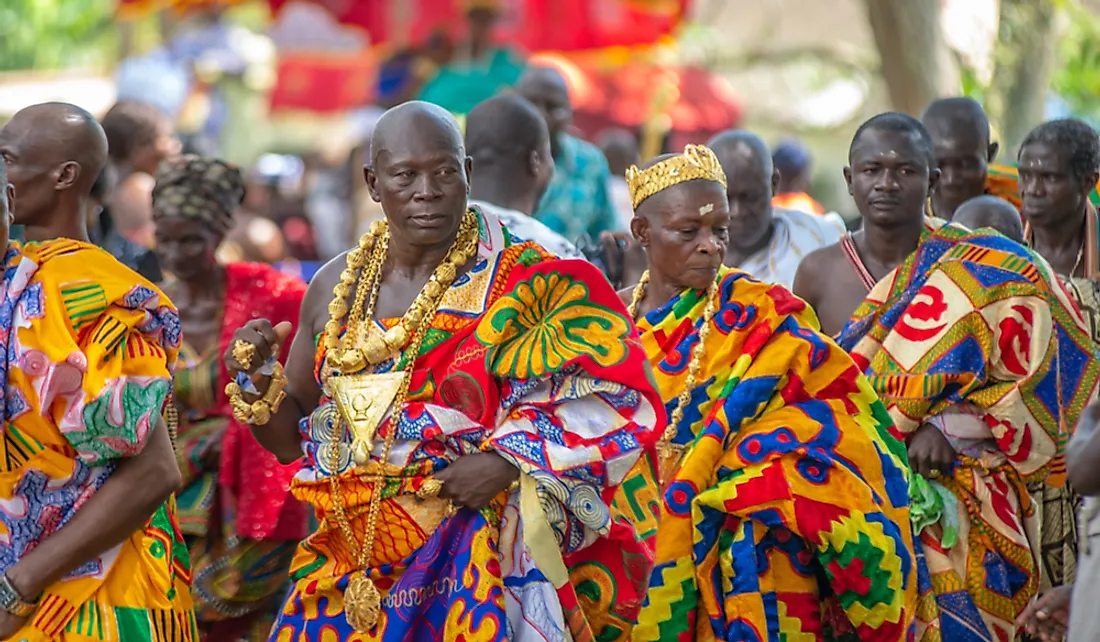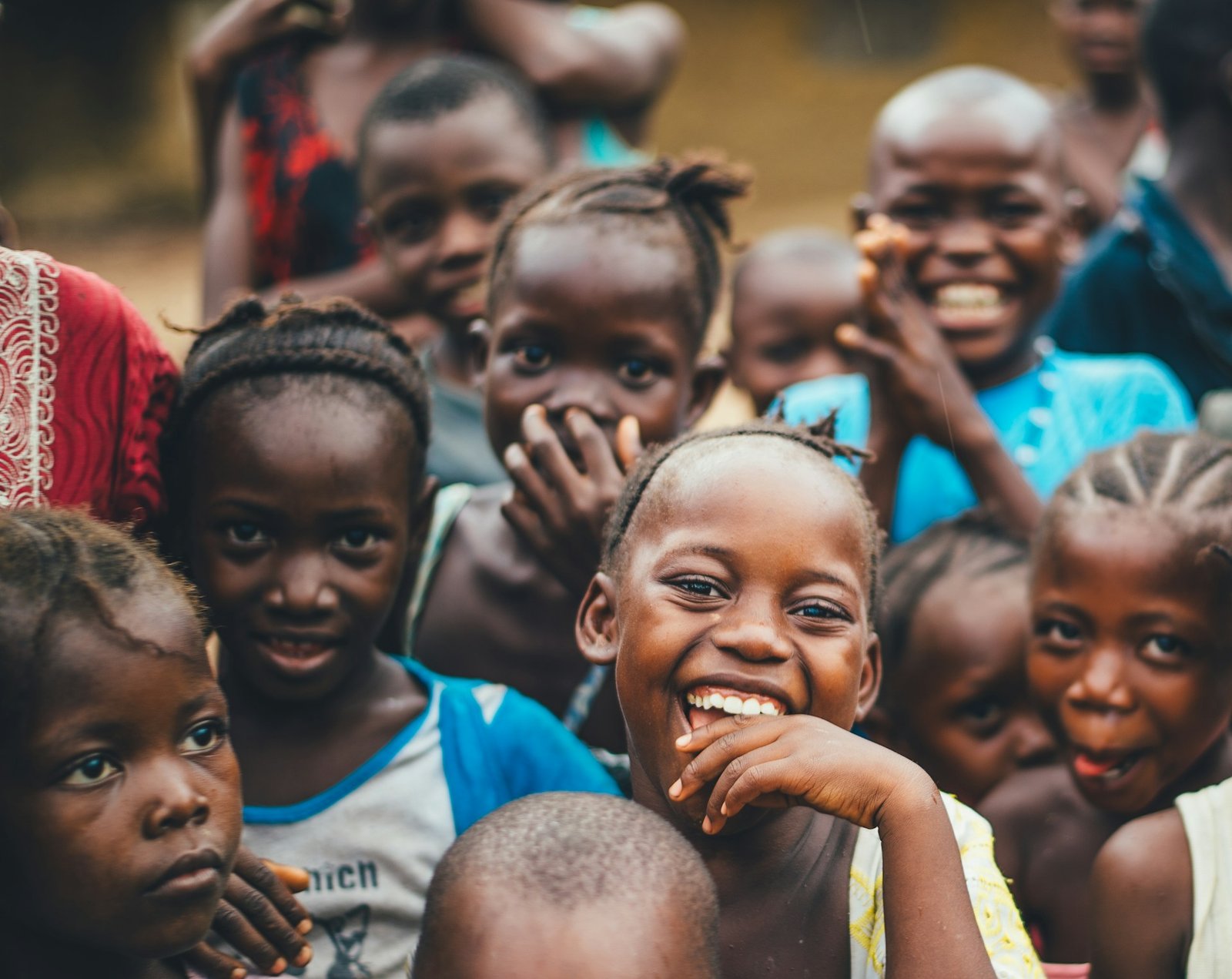Ghana is a land of vibrant traditions and rich cultural heritage, where festivals play a central role in the lives of its people.
These colorful and lively events reflect the diverse ethnic groups, histories, and beliefs that make up the country.
Every year, locals and visitors alike gather to celebrate these unique festivals, offering a glimpse into the deep-rooted customs and traditions of Ghana.

Whether you’re planning a visit or simply want to learn more, here are the top 10 festivals celebrated in Ghana that you won’t want to miss.
1. Homowo Festival (Ga People)
- Where: Greater Accra Region
- When: August to September
Homowo, meaning “hooting at hunger,” is a major festival celebrated by the Ga people of Accra. It commemorates a period of famine in their history, which was followed by a bountiful harvest. This festival serves as a time to give thanks for abundance and to celebrate resilience. During Homowo, “kpokpoi” (a special meal made from maize and palm nut soup) is shared, and the streets are filled with music, drumming, and colorful processions.
2. Aboakyir Festival (Efutu People)
- Where: Winneba, Central Region
- When: First Saturday in May
Aboakyir, which translates to “game hunting,” is a unique festival celebrated by the Efutu people of Winneba. The festival’s origins are tied to the community’s migration history and their connection to the god Penkye Otu. The highlight of the festival is a competition between two groups who race to catch a live deer. Once caught, the deer is presented to the chief and the people, and the celebration continues with drumming, dancing, and communal feasting.
3. Damba Festival (Northern Tribes)
- Where: Northern, North East, and Savannah Regions
- When: Based on the Islamic lunar calendar, typically in the third month
The Damba Festival is celebrated by the Dagombas, Gonjas, and Mamprusis in northern Ghana. While it marks the birth of the Prophet Muhammad, the festival has evolved to also celebrate chieftaincy, leadership, and cultural pride. The festival is a grand event, filled with traditional drumming, horseback riding, and vibrant dances that reflect the deep cultural roots of the people in the north.
4. Odwira Festival (Akan People)
- Where: Eastern Region (Akropong, Aburi, and Larteh)
- When: September to October
Odwira is a purification festival celebrated by the Akan people, particularly the Akuapem. It is a time for cleansing, reconciliation, and honoring ancestors. This festival dates back to the 19th century and also commemorates the Akan’s victory over the Ashantis at the Battle of Katamanso. During Odwira, sacred rituals are performed, and chiefs, dressed in their finest regalia, lead a colorful durbar, or procession.
5. Hogbetsotso Festival (Anlo-Ewe People)
- Where: Anloga, Volta Region
- When: First Saturday in November
The Hogbetsotso Festival is a historical celebration of the Anlo-Ewe people’s dramatic escape from the tyrannical ruler Agorkoli in Togo. According to legend, the people managed to escape by walking backward to confuse their pursuers. The festival is filled with storytelling, traditional music, and dance, with Agbadza being one of the most notable performances. Chiefs gather in elaborate durbars, and the community gives thanks for freedom and unity.
6. Fetu Afahye (Fante People)
- Where: Cape Coast, Central Region
- When: First Saturday in September
The Fetu Afahye is celebrated by the Fante people in Cape Coast as a way to give thanks to the gods for sparing them from a historic plague. This vibrant festival also signals the start of a new harvest season. Throughout the week, the streets come alive with parades, drumming, and the sounds of horns, as people dress in bright traditional attire. A grand durbar of chiefs and a feast bring the festival to a close.
7. Kundum Festival (Ahanta & Nzema People)
- Where: Western Region
- When: August to November
Kundum is one of the longest-lasting festivals in Ghana, celebrated by the Ahanta and Nzema people to thank the gods for a bountiful harvest. With its roots in ancestor worship, Kundum features rituals and ceremonies designed to appease the spirits and ensure continued blessings. The festival is marked by drumming, dancing, and communal feasting, creating a joyful atmosphere throughout the participating communities.
8. Bugum Chugu (Fire Festival)
- Where: Northern, Upper East, and Upper West Regions
- When: January or February (Islamic lunar calendar)
Bugum Chugu, or the Fire Festival, has its origins in both Islamic tradition and local folklore. One story tells of a king’s missing son who was found after the people lit torches to search for him. Today, the festival is marked by a procession of people carrying lit torches through the streets, symbolizing the search for light and enlightenment. It is a powerful and visually striking celebration of unity.
9. Akwasidae Festival (Ashanti People)
- Where: Kumasi, Ashanti Region
- When: Every 42 days, on a Sunday
The Akwasidae Festival is one of the most important cultural events in the Ashanti Kingdom. Held every 42 days, this festival honors the Ashanti ancestors and the Asantehene (king). The highlight of the festival is the grand durbar, where the king sits in state and receives homage from his people. The display of traditional Ashanti regalia, music, and dance is a spectacular showcase of Ashanti culture.
10. Adae Kese Festival (Ashanti People)
- Where: Kumasi, Ashanti Region
- When: Every 40 days, on a larger scale than Akwasidae
Adae Kese is the grandest version of the Akwasidae Festival and is celebrated every few years to mark significant milestones in the Ashanti Kingdom, such as a king’s coronation or a major historical victory. It is an opulent event filled with royal pageantry, where the Golden Stool, the symbol of Ashanti unity, is displayed. Adae Kese brings together thousands to honor their ancestors and celebrate their rich history.


